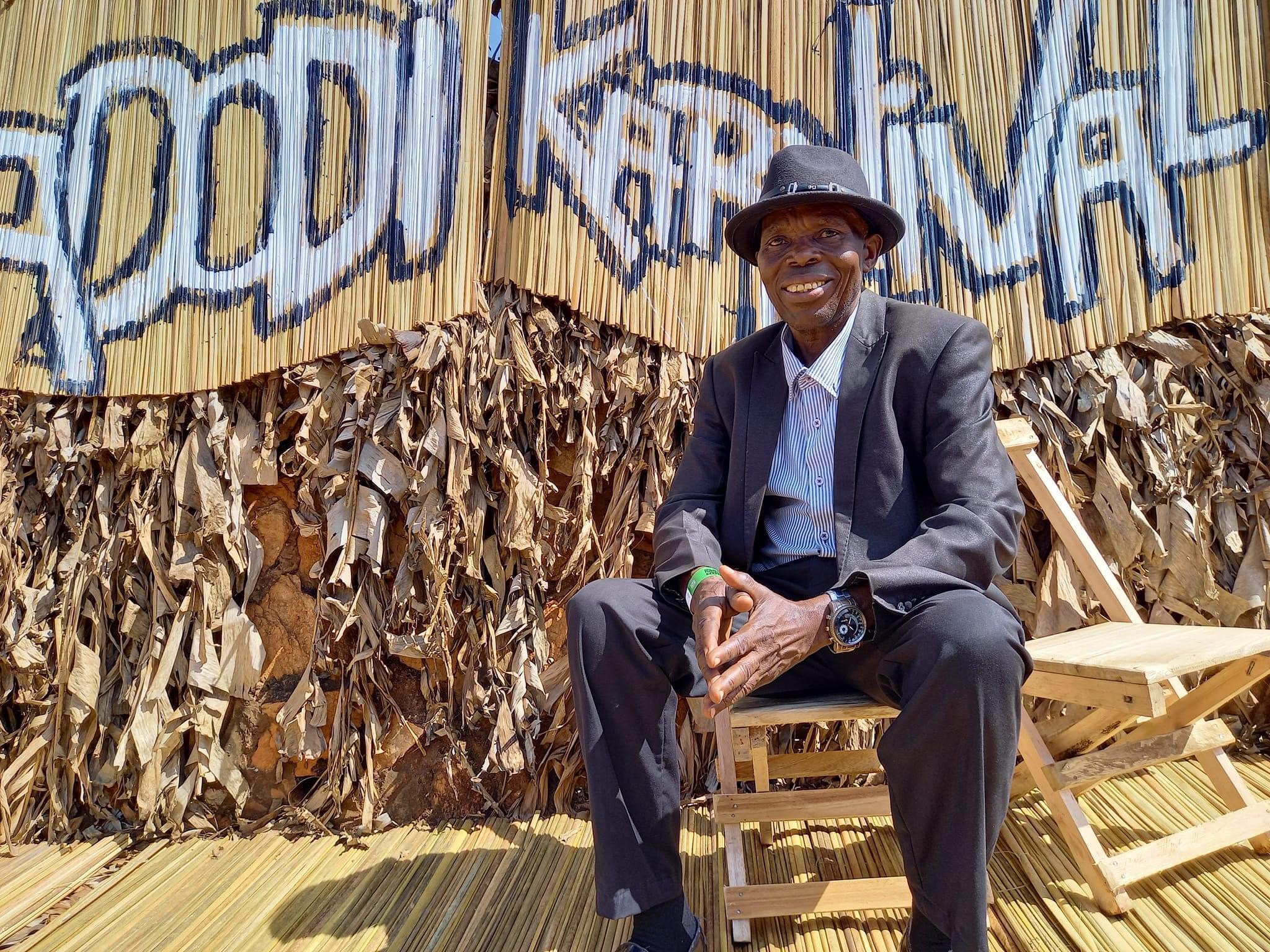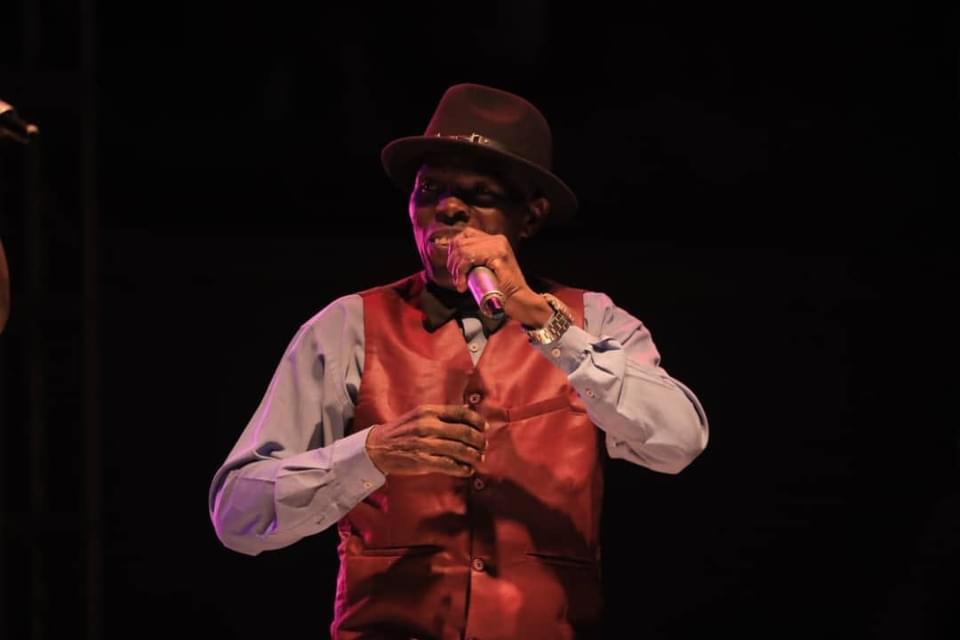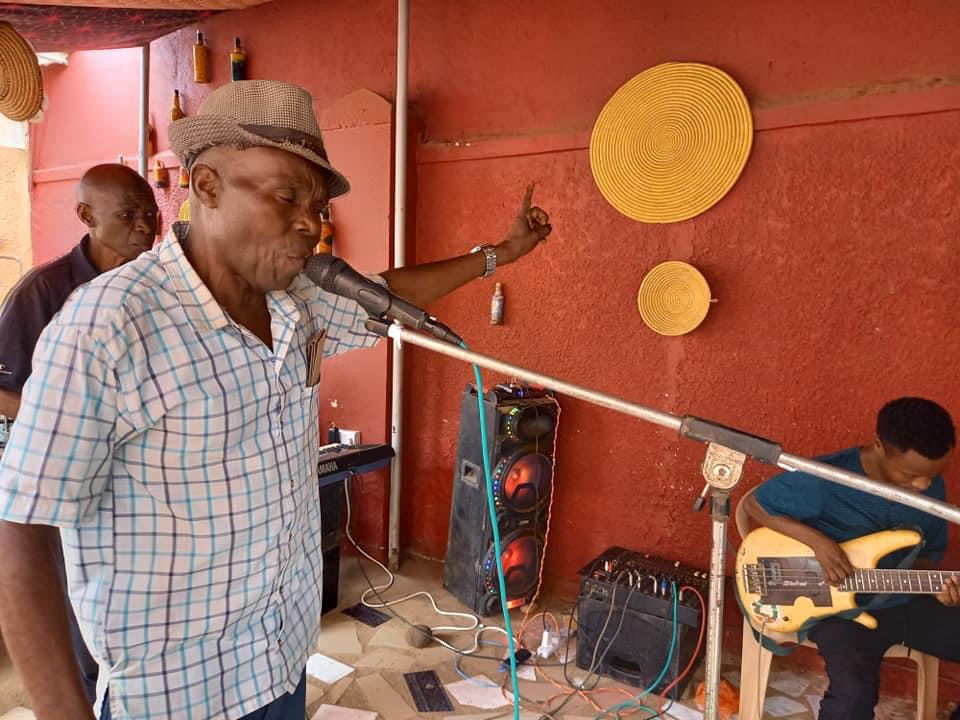
 Time FM
Time FM

 Time FM
Time FM
19 August 2024, 5:40 pm
By Shadrach Bethel Afayo
Music, like many arts, has been refined and redeveloped over the years. Genres have emerged, and technological advancements have not only streamlined production but also uncovered hidden talents worldwide. However, this constant evolution has also brought about negative impacts, contributing to cultural and moral decline in some ways. Decades ago, music was not merely entertainment but also a means of educating the masses and fostering positive societal change.
Yet, hope persists. One man, Iddi Masaba, has transcended eras. Beginning his music career in the 1970s, he continues to captivate audiences with electrifying performances and a unique musical style. His songs, including “Bana bange,” “Kyawangoyo,” and “Nabudwale,” dominated the airwaves, cassette sales, and concerts in Mbale and the surrounding Elgon sub-region for an extended period. A music career spanning over 35 years undoubtedly encompasses highs and lows, lessons learned, inspiration, and moments of both joy and sorrow.
Shadrach Bethel Afayo sat down with this music icon to discuss his musical journey, the evolving music industry, and his enduring appeal to fans of all generations, including Gen Z.

Interview:
Tell us about your early life and how you developed an interest in music?
I was born in 1960, right here in Mbale, making me a native. My parents moved to Buganda for work when I was young. Around the age of eight, while in Kampala, I first experienced live music through performances by Baganda music and cultural troupes. I developed an interest in music through school activities involving music, dance, and drama. My talent for playing drums caught a teacher’s attention, and they encouraged me to pursue a music career after completing school. However, my deep-rooted passion for music began affecting my studies, leading my father to bring me back to Mbale to escape the influences of my friends in the cultural troupes.
How did you start your music career, and what inspired you to pursue it professionally?
Returning to Mbale didn’t extinguish my passion for music. I sought ways to improve my skills and met local guitar players. Schooling became difficult in the 1970s due to government restrictions on imports and exports. With limited family income, I had to quit school and find a way to earn money before pursuing music. At 18, I started working as a mechanic in a Mbale garage. I later obtained a driving permit at 22, which provided additional income to buy musical instruments.
I collaborated with musicians from Zaire who performed in halls like Ashok in Mbale. Inspired by the teamwork I witnessed in the Baganda music troupes, I aimed to create a similar dynamic among local artists. Despite initial challenges, we formed the Nanyonza band in the late 1990s. My first album, “Nabudwale,” released in 2001, was later enhanced in 2004 with additional songs and improved sound.
What genre of music do you specialize in, and how would you describe your sound?
My genre is Luwengele, often mistakenly referred to as Kadodi by younger generations or those unfamiliar with the Bugisu region.
You’ve been in the music industry for over 30 years. How has music evolved over time?
Today, anyone can quickly record and release a song, regardless of its quality. In the past, we carefully crafted lyrics and sought feedback from industry peers. Our songs have endured because of the time and effort invested in them. Musicians once shared a strong bond, but now there’s increased competition and conflict.
What challenges have you faced throughout your career, and how have you overcome them?
I’ve encountered various challenges, including temptations from women due to my fame. Self-control and discipline helped me navigate these situations. Financial setbacks were also common, but patience has been essential in overcoming obstacles.

How do you stay relevant in an ever-changing music industry?
Remaining true to my Luwengele genre has been key to staying relevant. While incorporating modern technology, I maintain the core elements of my music.
How has the music industry changed since you started, and how have you adapted to these changes?
Technology has revolutionized music production and distribution. While I appreciate the advancements, I’m concerned about the increasing competition and conflicts within the industry. I’ve responded by enhancing my sound and collaborating with other artists, such as Titus Vybes on the song “Settinga.”
How do you think the rise of new artists and genres has impacted the industry?
The rise of new artists and genres has increased diversity and competition. While Luwengele remains strong, there’s room for everyone to succeed as long as there’s fair competition.
How has technology impacted your music production and distribution process?
Technology has significantly simplified music production and distribution. In the past, we relied on physical equipment and transportation for performances. Now, music can be easily shared digitally.
Do you think social media has made it easier or harder for artists to succeed?
While social media is a valuable tool for promoting artists, success ultimately depends on live performances and bookings. Building relationships with event promoters is crucial for gaining exposure and attracting a loyal fanbase.
How do you utilize social media to engage with your fans and promote your music?
I rely on my management team to handle my social media accounts. While I’m aware of my online presence, I prefer to focus on live performances and personal interactions with fans.
Who are some of your biggest musical influences, and how have they shaped your sound?
The music industry has evolved, and support systems for artists have improved significantly. While I appreciate the support I receive now, I faced challenges early in my career when financial backing was scarce.
How do you want to be remembered as an artist, and what legacy do you hope to leave?
I aim to preserve the Luwengele genre by teaching it to younger generations. With additional resources, I hope to enhance my music production and solidify my legacy as the pioneer of Luwengele.
What advice would you give to upcoming artists trying to make it in the industry?
Patience and continuous learning are essential. Take advantage of the support systems available, such as promoters and producers. While entertainment is important, strive to create music with lasting impact and educational value.
What are you currently working on, and what can fans expect from your upcoming projects?
I’m currently working on a new song that will be released in two weeks.
What message do you hope your music conveys to your listeners?
I hope my music inspires and educates young people. By embracing and refining the Luwengele style, they can create a unique and impactful sound.
Is there anything else you’d like to share with your fans and everyone out there?
I encourage everyone to support Lumasaba music. While perfection is unattainable, let’s uplift local artists as they strive to improve. I urge Bamasaba artists to embrace the Luwengele genre. I appreciate the support of my fans and look forward to performing at upcoming events in Mbale City.